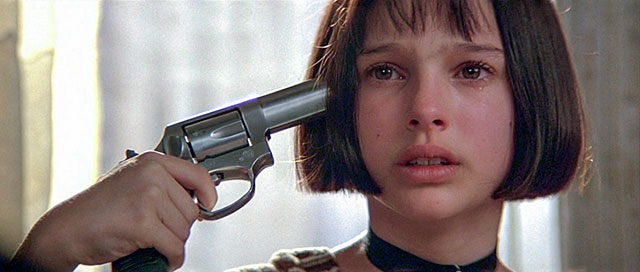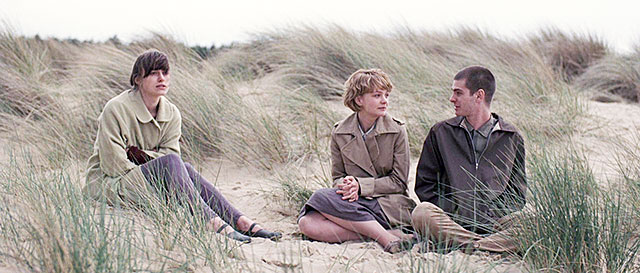

Writing scenes
What is a scene? A scene starts and ends in one place at one time (the Aristotelian unities of time and place). A scene starts in one place emotionally and ends in another place emotionally. Starts angry, ends embarrassed. Starts lovestruck, ends disgusted. Something happens in a scene, whereby the character cannot go back to the way things were before. Make sure to finish a scene before you go on to the next. Make something happen”.
Jane Fitch, 10 Rules for Writers
If a script is a metaphorical journey between two moments in time, it is left to the writer to select the route. There are plenty of ways to get from A to B so the scenes you include in your script need to be chosen with care and fulfil certain criteria.
There are two primary questions you need to ask about any scene:
Does the scene move the story forward without trying the patience of the audience? If an audience is engaged in your story, they will always want to know what happens next. If you delay satisfying their curiosity for too long or if you go off on an irrelevant digression, then you run the risk of losing them.
Does the scene turn the story in a new and interesting direction? Every scene is a potential ‘crossroads’, a chance to surprise and intrigue the audience by confounding their expectations. This isn’t always possible with every scene in your script but you should look for the opportunity wherever you find it.
Scene Analysis
The key questions to ask about scenes are the same ones that apply to the larger units of structure (see “Introducing Structure“), the Act and The Story:
What is the scene about? There is usually an answer which can be stated in simple physical terms.
Who drives the scene? What do they want? (to do -) This identifies the scene’s objective. Once identified, we know where the scene “officially” begins. The last essential beat will be the success or failure in achieving this objective. We can change these “goal-posts” as long as we realise that, by doing so, we re-define what the scene is about
What are the sources of antagonism? What do they want? (to do -) Are their objectives opposed? If there is active opposition to the Protagonist or Person Driving the Scene, the conflict will inevitably be stronger. Ideally, opposition should be coming from more than one source (see “Levels of Conflict”).
What else is the scene about? Assuming that the drama is happening at more than one level, what is going on at other levels? This is the writer’s main opportunity to illuminate and surprise. If your scenes are only plot driven, then you are probably missing a trick or two.
What has changed between the beginning and end of the scene? Ideally, the “prevailing values” at the beginning of the scene should have altered in at least one respect by its conclusion. (ie. A shift in the balance of power). Identifying the arc of a scene will also help to make you aware of the turning point, the moment where this crucial shift happens.
Does the scene justify its existence? Is everything in it necessary to the story? This is, in a sense, re-stating our first two criteria: does the scene carry the story forward and has it changed it in any new or interesting fashion?
© David Clough 1995

Scene structure
Structurally a scene is the second smallest unit of structure within a film and it is made of beats, the smallest unit. (If you don’t know what they are, read the section on Introducing Structure). Choosing when to begin a scene and where it ends are crucial decisions when it comes to framing the scene itself.
For example, if you had a scene in a film in which a wife tells her husband that she is having an affair then the most important beat in the scene is the moment when she gives him the news. This is the beat that’s needed to move the story forward but it doesn’t even have to be in the scene!
You could begin the scene the moment after she’s told him, or end it just as she opens her mouth while he looks at her, lovingly and unsuspectingly. In certain circumstances, both of those might be interesting editorial choices and less predictable than more conventional ones.
Too many scripts progress ploddingly from A to B to C building up to a supposedly dramatic climax when they don’t always need to. Similarly, many linger after the event when it’s equally unnecessary. From this has come the classic advice regarding scene structure: to start late and get out early, meaning that you should try to trim the superfluous beats from a scene to give it more dramatic impact.
Starting a scene ‘late’
Look at this extract from David Lean’s feature-length version of Dr Zhivago made in 1965 with a script by Robert Bolt. At this point in the story, the protagonist Dr Zhivago (Omar Sharif) decides to break up with his mistress Lara (Julie Christie).
We see him making the decision, then riding off to tell her, but we do not see the actual moment he does it. There are several other adaptations of this Russian novel (see my page on Dr Zhivago) and at least two of them contain quite long scenes where he does tell her but they are television series.
Lean was making a feature film, and trying to cram into it a long and complicated story, so his decision to shorten the scene was, to a certain extent, dictated by expediency; but his version certainly does not lack impact and I prefer it to at least one of the tv adaptations.
David Clough 2017

Making an entrance
The first beats of a scene are crucial. They set the tone and cut a groove for the rest of the scene to follow. Making a good beginning will make your job so much easier so it’s worth spending time trying to find one that’s appropriate.
Actors in the heyday of the theatre were obsessed with ‘making a good entrance’; meaning that their first appearance on stage in a play had to have an impact. If the actors were stars, they would expect a round of applause to greet them regardless of the style of the drama.
I often think of a scene like a room with multiple doors opening into it. Picking the right one is a skill worth cultivating and certainly not a choice you make lightly.



